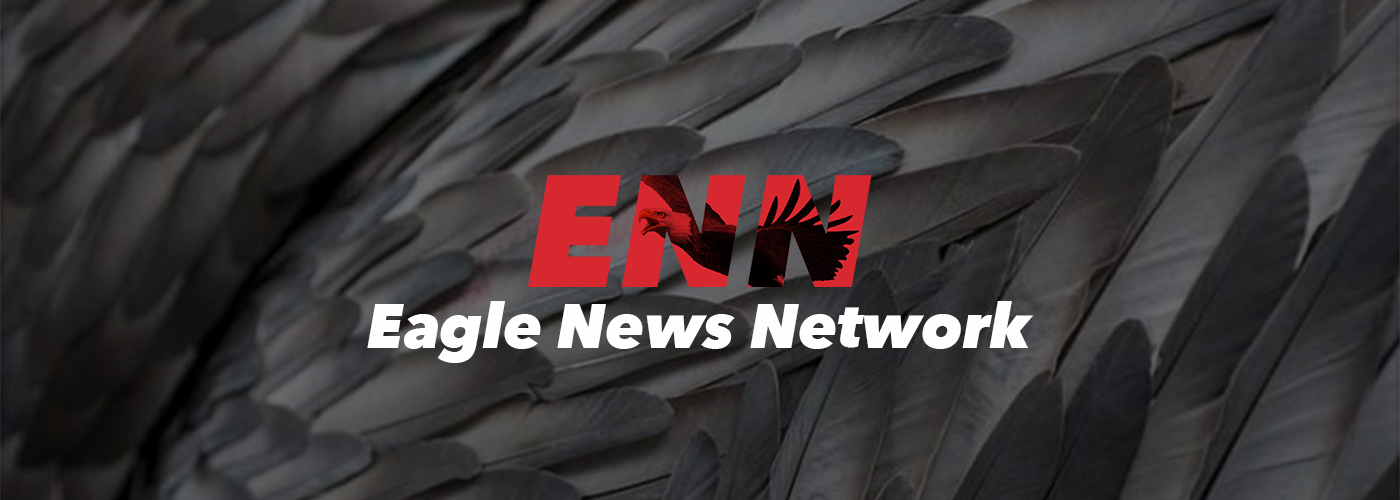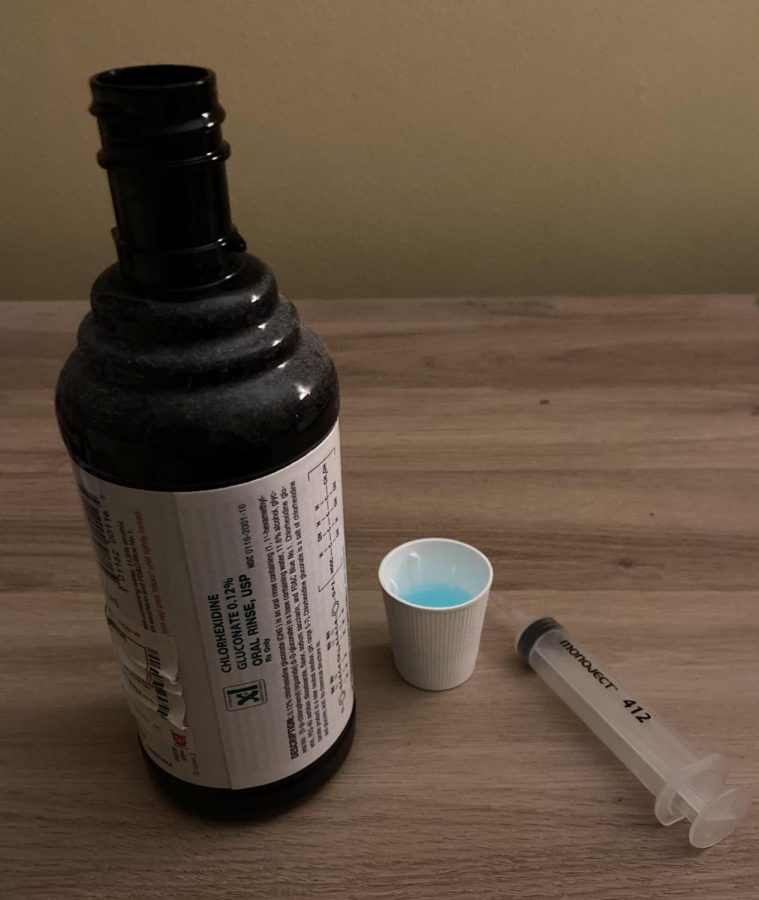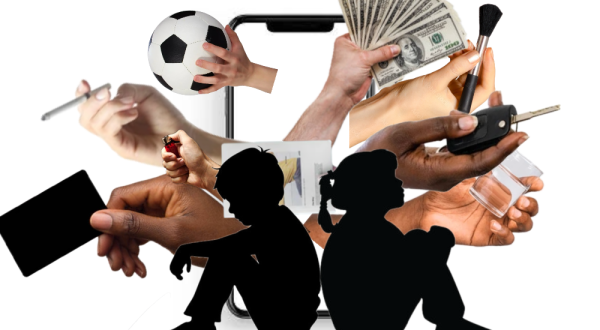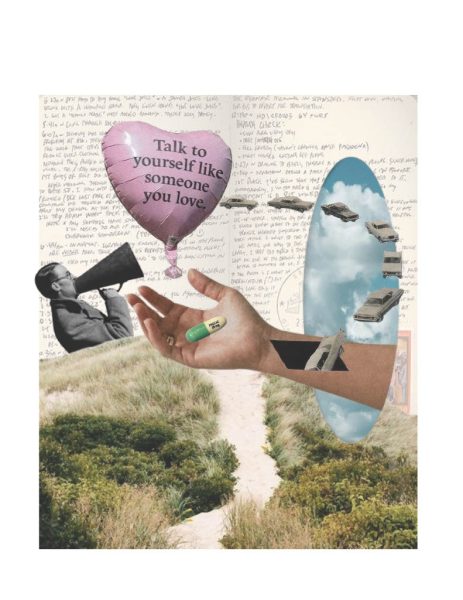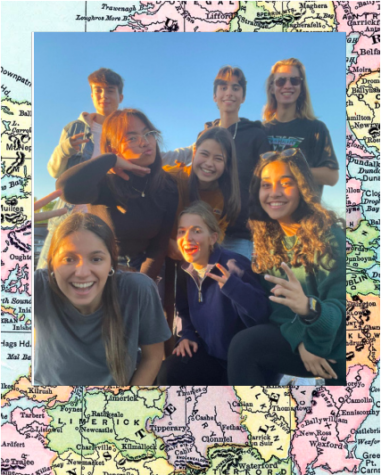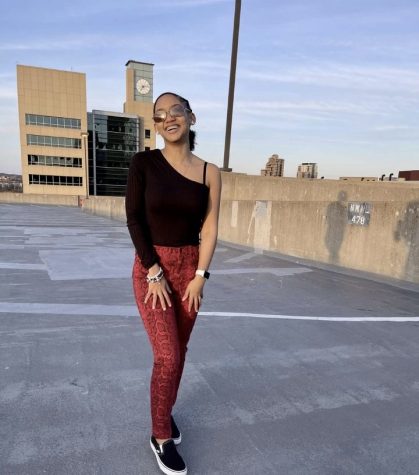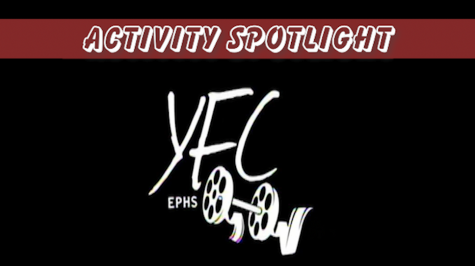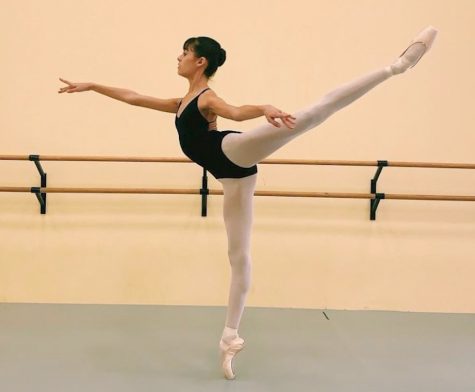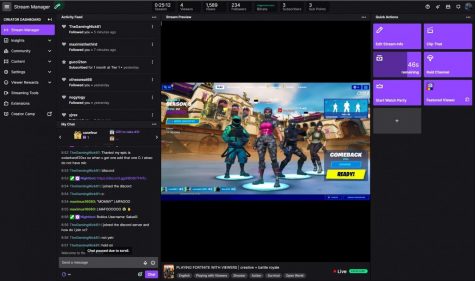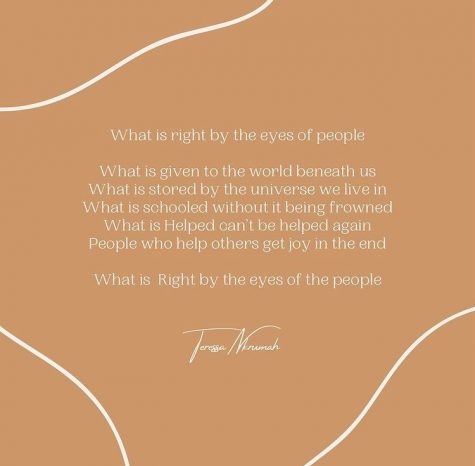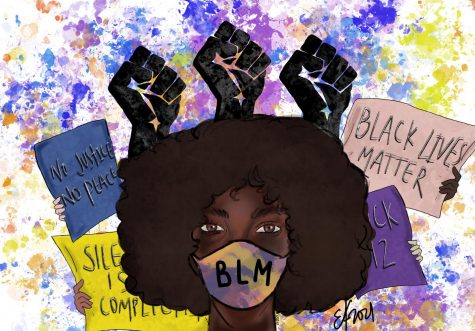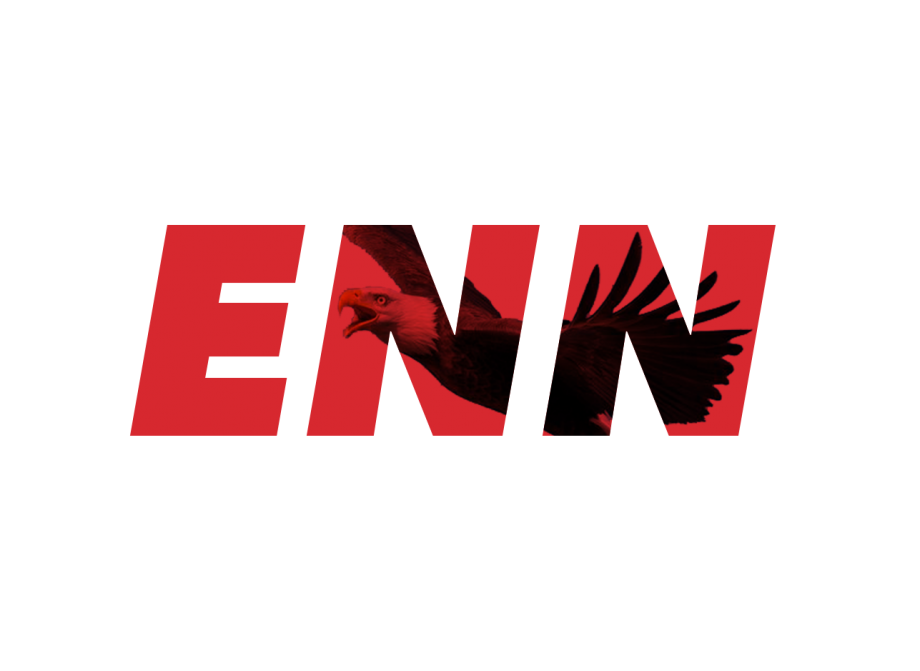What It’s Like to Lose Your Wisdom (Teeth)
January 10, 2021
What are most fourteen-year-olds most worried about? Likely, the resounding answers would be related to school or their relationships, and for me, that was no exception. That is, until an orthodontist appointment in early August of last year.
The doctor poked and prodded around in my brace-ridden mouth. He looked from my recent X-ray to the back of my mouth, frowning. Finally, he turned to my mom and said, “She needs to get her lower wisdom teeth out.”
Hold up, what?
The diagnosis (and initial panic)
Most of what I knew about the plights of wisdom teeth removal were from funny videos on YouTube of loopy people heading home to recover. But those people were older than I was. I hadn’t even started high school yet, and I was already getting my wisdom teeth out? Confusion and panic hit me. Will it hurt? What if an embarrassing video of me afterwards goes viral? What if I die in surgery? With my limited knowledge, I was already stressed out months before the procedure, but as I went through the process I learned it wasn’t all too bad. Here was my experience:
The pre-surgery appointment
After school started and I preoccupied myself with mountains of English homework. I didn’t give my wisdom teeth much thought until my pre-surgery appointment in November, where a surgeon told me about what was going to happen in a few weeks.
Not much happened. They simply looked at my X-ray (that was projected onto a TV hanging from the ceiling, which I thought was kind of cool) and gave me a pamphlet with what to expect for the day of the surgery. Still anxious, I counted down the days.
The day of
Starting roughly eight hours before the surgery, you are not allowed to eat or drink anything so you don’t vomit and choke while there are several pointy tools in your mouth. This wasn’t much of a problem for me, as my surgery was first thing in the morning (plus, you know, the thought of possibly dying doesn’t exactly make you want to eat a five-course meal or anything).
In the operating room, one of the nurses greeted us and displayed a few of the things I would need during the recovery process. She handed me a small cup of bright blue mouthwash from the bottle in her hand, instructing me to try it.
I regretted listening to her the moment the stuff passed my lips. It tasted like rubbing alcohol mixed with every chemical you could think of. I spat it out after the required one minute it needed to stay in my mouth.
“You’re going to need to rinse your mouth with this stuff for at least a week,” the nurse said. Awesome.
A few more instructions and my mom wished me luck and left the room, leaving me waiting for what would happen next alone.
The injection
After an agonizing several minutes of thinking about all the terrible things that could possibly go wrong, the doctor moved over to reveal the IV needle in his hands. He inserted it into the inside of my elbow – it hurt less than I anticipated, which I was grateful for, as I was a bit squeamish about the idea of an IV – and said, “You’ll feel the anesthesia in about ten seconds.”
The seconds ticked by. I waited, then opened my mouth to say I wasn’t feeling anything yet –
And suddenly it hit me like a ton of bricks. My arms weighed as much as iron, yet everything else was light and floaty. Had the ceiling lights been this bright before? I didn’t know, but I was aware of the sleepiness coursing through my veins alongside the anesthesia. My eyes drifted shut – probably within seconds, but it felt much longer. It was the calmest I had been in a while. A dreamless sleep overtook me.
I’m alive! (and super high)
The next thing I knew, I was curled up in the fetal position on a different bed. My mouth was incredibly numb and full of gauze.
I’m alive!
I rolled over to face the wall on the opposite side of me, and the next sequence of events was my “higher than a kite” moment almost everyone has, like the ones I had seen on YouTube. A painting greeted me on the other wall. It wasn’t anything noteworthy – it looked like one you’d see in a doctor’s office. Yet my brain decided it was the peak of comedy and I started laughing uncontrollably. Even when I looked away, the mere thought of this simple painting was enough to throw me into hysterics.
It didn’t take long for an aide to show up with a wheelchair to take me into the lobby (as you’re too loopy to walk after surgery). The clinic was on the second or third floor, so we had to take the elevator.
I was living in the moment! I giggled like a three-year-old and cheered as the elevator made its descent. At that point, I didn’t even know what I was laughing about. I just knew the anesthesia had something to do with it.
Going home
The ride home was less eventful. I tried to explain how the procedure went to my mom, who couldn’t understand a word I was saying due to the gauze and numbness. On top of that, I was quickly learning that communicating through the numbing novocaine wasn’t going to be easy. There were a few more giggles. Then I realized how tired and hungry I was and just stared out the window sleepily. The decrescendo of my anesthetic high was a sign everything was going smoothly.
When I got home, someone replaced my bloody gauze with part of the fresh supply gifted to us. I then tried to sleep to recover, but after coming to the conclusion that I wouldn’t be able to, I got up and ate about three spoonfuls of chocolate pudding. It tasted like nothing and I couldn’t even feel the spoon. Even that tiny bit of food was too much for my stomach to handle; a half hour later, a rather intense wave of nausea hit and I rushed to the bathroom. Luckily I held on.
After sore?
After these exciting events, everything calmed down. My mom went to the pharmacy and obtained my antibiotics and a bottle of acetaminophen. Gradually the numbness faded away. With my extremely low pain tolerance in mind, I braced myself for the pain that was known to follow.
But for me, it wasn’t that bad. Occasionally I would feel the pangs of soreness, and my cheeks did swell to roughly the size of a watermelon. This is helped by the fact that I didn’t develop the painful hell that is a dry socket, something that I had heard was a possibility.
I’m eternally grateful for the ice pack I bought previously, which helped with both the pain and the swelling (that will be at its worst about two to four days afterwards). You will want to invest in a good one beforehand.
The swelling went down within what time frame? Just in time for me to head back to school. I had to take an ibuprofen or a Tylenol every so often (alternating between the two – again, depends on the person’s surgery) during school hours, but the pain was manageable and I could focus.
Also of note was the disgusting mouthwash. I slowly became accustomed to the taste, but not before I spit it out early, ignoring the one minute rule.
Follow up maintenance and moving on
A week or so later, I had a follow-up appointment at the clinic where they removed my stitches and I could feel the gaping holes in my mouth. The doctor handed me an irrigator that’s supposed to flush out food particles from your sockets. They tested it out by squirting water into the sockets, instructing me to spit when needed. From experience, I can say with confidence the feeling of cold water shooting into a crevice in your mouth is the second-strangest sensation I’ve ever felt (with number one being the seconds after the anesthesia rushed into my veins). And I had to rinse them out twice a day until they closed up! It was lots of fun. (Not.)
The rest of recovery went by smoothly. I finished my mouthwash and antibiotic prescriptions. I continued to irrigate my sockets until they finally closed up and I continued with life.
I can safely say that the whole ordeal was one of the strangest, but I learned that it wasn’t nearly as bad as I was expecting, and I know what to expect for when it’s time for my upper wisdom teeth to come out.
At least I got prizes for it – a new bracket for my braces, a bottle of neon blue mouthwash, an irrigator, and a partridge in a pear tree.

